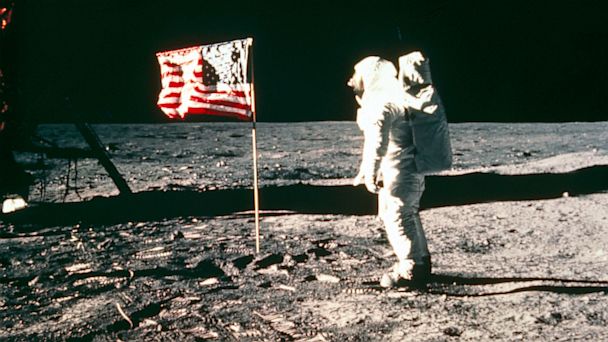Bill Sets Public Access, National Park on Moon

Credit: SSPL/Getty Images
Two Democratic congresswomen are over the moon for the creation of a new national park-literally.
Reps. Eddie Bernice Johnson, D-Texas, and Donna Edwards, D-Md., filed a bill this week which would establish a new national park on the surface of the moon at the site of the Apollo lunar landings.
Concerned about potential damage to the historic areas, the congresswomen write in the bill that "as commercial enterprises and foreign nations acquire the ability to land on the Moon it is necessary to protect the Apollo lunar landing sites for posterity."
"I realize that it can sound far-fetched to say that we're going to have a National Park on the Moon," Edwards wrote in a statement. "I don't think that there is anything far-fetched about protecting and preserving such irreplaceable items and such a hallowed place."
The bill, deemed the "Apollo Lunar Landing Legacy Act," was submitted through the House Committee on Science, Space and Technology, of which Edwards is the ranking Democrat. Johnson is the top Democrat on the House Subcommittee on Space.
Written specifically into the bill is language instructing the Secretary of the Interior Department to "provide public access to" the lunar site and also "provide visitor services and administrative facilities."
The legislation would have to adhere to the international Outer Space Treaty of 1967, which was signed by 101 other countries and states that "outer space, including the Moon and other celestial bodies, is not subject to national appropriation by claim of sovereignty, by means of use or occupation, or by any other means."
Therefore, without claiming ownership of the moonscape itself, the bill would designate the artifacts left behind such as the landing gear, footprints, moon walking gear and roving hardware as a "National Historical Park."
The bill also urges Secretary of the Interior Sally Jewell to pursue making the new park a UNESCO World Heritage Site.
"[The congresswomen] think this is an invaluable historical place that should be protected," said a Democratic spokeswoman for the Science, Space and Technology Committee who asked not to be identified. "Other space faring commercial entities or nations could go and possibly damage the Apollo 11 site, erase Neil Armstrong's footsteps."